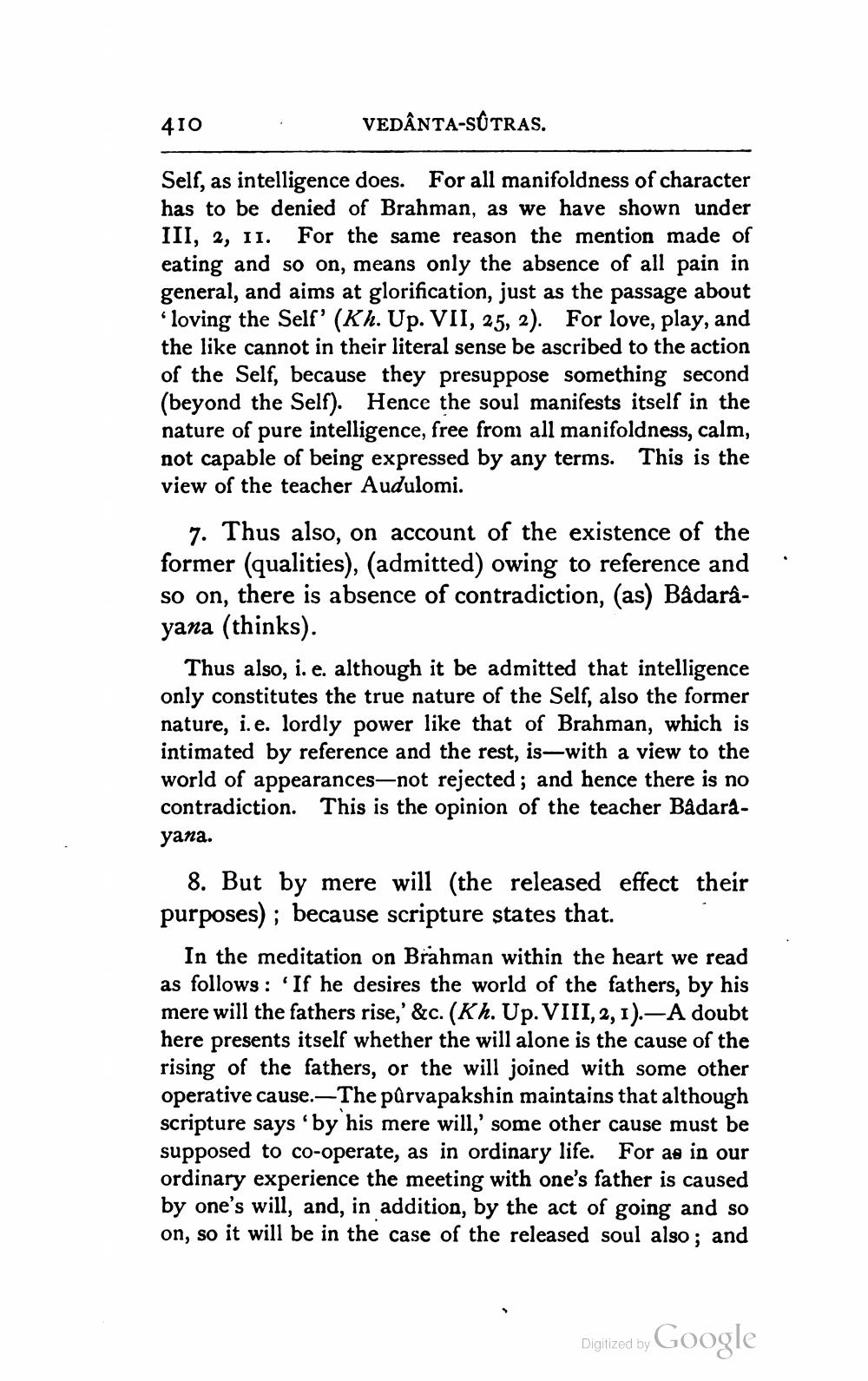________________
410
VEDÂNTA-SOTRAS.
Self, as intelligence does. For all manifoldness of character has to be denied of Brahman, as we have shown under III, 2, 11. For the same reason the mention made of eating and so on, means only the absence of all pain in general, and aims at glorification, just as the passage about 'loving the Self' (Kh. Up. VII, 25, 2). For love, play, and the like cannot in their literal sense be ascribed to the action of the Self, because they presuppose something second (beyond the Self). Hence the soul manifests itself in the nature of pure intelligence, free from all manifoldness, calm, not capable of being expressed by any terms. This is the view of the teacher Audulomi.
7. Thus also, on account of the existence of the former (qualities), (admitted) owing to reference and so on, there is absence of contradiction, (as) Bådarayana (thinks).
Thus also, i.e. although it be admitted that intelligence only constitutes the true nature of the Self, also the former nature, i.e. lordly power like that of Brahman, which is intimated by reference and the rest, is—with a view to the world of appearances—not rejected; and hence there is no contradiction. This is the opinion of the teacher Bådarayana.
8. But by mere will (the released effect their purposes); because scripture states that.
In the meditation on Brahman within the heart we read as follows: 'If he desires the world of the fathers, by his mere will the fathers rise,' &c. (Kh. Up. VIII, 2, 1).- A doubt here presents itself whether the will alone is the cause of the rising of the fathers, or the will joined with some other operative cause.—The purvapakshin maintains that although scripture says 'by his mere will,' some other cause must be supposed to co-operate, as in ordinary life. For as in our ordinary experience the meeting with one's father is caused by one's will, and, in addition, by the act of going and so on, so it will be in the case of the released soul also; and
Digitized by
Digitized by Google




